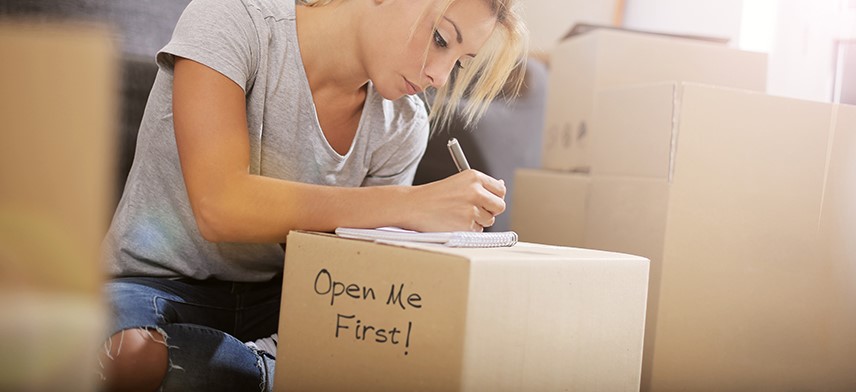
How to Pack an Essentials Box
The relocation experts at Suddath®, which is both a local mover and a company that handles international relocations, know that one of the best ways to make your move go more smoothly — before and after moving day — is to pack a box of essential items that will be the last you use before the move and the first you’ll need when you arrive at your new home.
An essentials box varies from family to family, and whether you’re moving across the state with a local mover or across the ocean. However, a good rule of thumb is that it should include items that can help you get through the final days before the move and the first 24 hours in your new home.
So what should go in your essentials box? The items generally fall into three categories: those that help keep you clothed and fed, those that keep you clean and comfortable, and those that you’ll need for unpacking and first aid. Medications certainly are an essential item, however it’s best to carry a couple of days’ supply with you.
You’re probably already thinking of items that should be on the list, but here are some suggestions to help, courtesy of one of America’s oldest and best moving companies:
Food and Clothing
Sure, you can call out for pizza while you’re in the process of packing and unpacking, but after three days, even the biggest pizza fan has had enough dough and cheese. So keep a few cooking utensils on hand to prepare easy meals before the day of the move and put them in your essentials box at the last minute, along with a few non-perishable food items, so you can access them quickly after your arrival.
- Jar of pasta sauce and pasta, and/or boxed items that don’t require added ingredients
- Peanut butter and jelly
- Loaf of bread
- Snacks
- Drinks in small containers
- Pet food in small containers
- Medium-sized kettle
- Plates, cups and eating utensils for each family member
- Toaster
- Coffee maker and coffee
- All-purpose knife
For clothing, it’s a good idea for everyone to have an extra pair of pants, a shirt, socks and underwear handy in case of spills or to freshen up. Also, if you’re moving long distance, consider any difference in climate and pack clothing for warmer or colder temperatures, depending on your situation.
Hygiene and Comfort
You’ll have a separate bathroom box with toiletries and personal hygiene items, and a kitchen box with cleaning products, but it’s still a good idea to have some small quantities in your essentials box to ensure you have quick access to them. Remember that all liquid items should be unopened to prevent a mess.
- Travel-sized containers of shampoo and toothpaste
- Toothbrush, floss, soap and deodorant
- Hand sanitizer
- Cleaning spray and dish soap
- Hair brush
- Shower curtain
- Bath towel and washcloth for each family member
- Kitchen towel
- Sheets for the beds
If you have a big family, you might want to consider having each person pack a separate box of personal items, to keep your essentials box a manageable size.
Unpacking and First Aid
Minor scrapes and bruises can be a common occurrence on moving day, so it’s good to have a first aid kit on hand with bandages, disinfectant and tweezers. If you have a significant cut or sprain, on the other hand, put your health ahead of your move and get to an emergency room.
For unpacking your boxes, a utility knife will come in handy, as will a small tool kit. Also, don’t forget trash bags for cleaning up packing paper and tape.
Happy Moving Day!
After you’ve packed and sealed your essentials box, be sure to label it clearly with a marker. Add the words, “Last box on, first box off,” and point it out to your moving team.
As a final bit of advice, the Suddath moving experts recommend that you consider the distance of your move when deciding what to pack in your essentials box and how to transport it. If you’re moving to a nearby city with a local mover, you might want to carry your essentials with you in your car. The best moving companies will take good care of your belongings, of course, but it won’t hurt to keep your essentials close at hand.
A well-thought-out essentials box will help you have a more-pleasant moving experience.